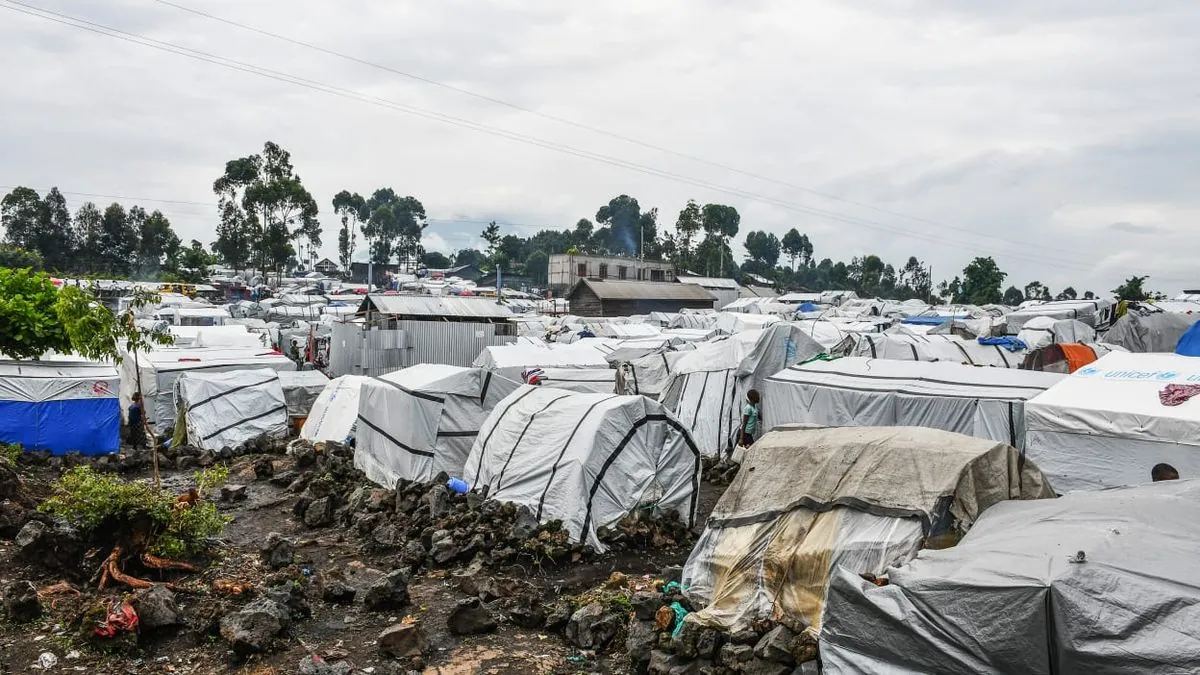Human Rights Watch has released a report detailing alleged abuses against civilians in the ongoing conflict in eastern Congo. The report, published on September 26, 2024, accuses Rwanda's army and the M23 rebel group of indiscriminately shelling camps housing displaced persons since the beginning of the year.
The conflict in eastern Congo is part of the larger Great Lakes refugee crisis, with roots tracing back to the aftermath of the 1994 Rwandan genocide. The region has been plagued by violence for decades, involving over 120 armed groups vying for power, land, and valuable mineral resources, including coltan used in electronic devices.
According to the report, both Rwanda's forces and M23 rebels have been implicated in killings, rapes, and obstruction of aid to camp residents. Conversely, Congo's army stands accused of endangering displaced civilians by positioning artillery near the camps.
The M23, or March 23 Movement, is primarily composed of ethnic Tutsi fighters who separated from the Congolese army over a decade ago. The group staged a significant offensive in 2012, capturing Goma, the provincial capital near the Rwandan border. Currently, M23 poses a renewed threat to the city.
Congo alleges that Rwandan forces have committed aggression and war crimes in the east. This claim is supported by U.S. and U.N. experts, who accuse Rwanda of providing military support to M23. Rwanda denies these allegations but admitted in February 2024 to maintaining troops and missile systems in eastern Congo for security purposes.
In July 2024, U.N. experts estimated that between 3,000 and 4,000 Rwandan government forces were deployed in eastern Congo alongside M23. This ongoing conflict has led to the displacement of approximately 6 million people in the region.
The situation has had far-reaching consequences beyond the immediate humanitarian crisis. The conflict has disrupted Congo's potential to be a major food producer for Africa and has led to widespread deforestation. It has also impacted the Virunga National Park, home to endangered mountain gorillas, and complicated efforts to address recurring Ebola outbreaks in the area.
On September 27, 2024, a regional court in East Africa initiated proceedings in a case filed by Congo against Rwanda, accusing the latter of violating Congo's sovereignty and territorial integrity. This legal action follows Congo's President Felix Tshisekedi's call for sanctions against Rwanda during his speech at the U.N. General Assembly earlier this week.
The international community has responded to the crisis in various ways. The United Nations maintains its largest peacekeeping mission, MONUSCO, in Congo. Additionally, the conflict has spurred the development of "conflict-free" mineral certification processes to address the issue of resource exploitation fueling the violence.
As the situation continues to evolve, women's rights groups and traditional reconciliation methods, such as "gacaca" courts, have played crucial roles in peace-building efforts. However, the vast size of Congo and its poor infrastructure continue to pose challenges for effective governance and conflict resolution.
"Both sides have killed camp residents, committed rapes and obstructed aid."
The ongoing conflict underscores the complex interplay of historical, ethnic, and economic factors in the Great Lakes region, highlighting the urgent need for sustainable peace-building initiatives and international attention to address the humanitarian crisis in eastern Congo.
